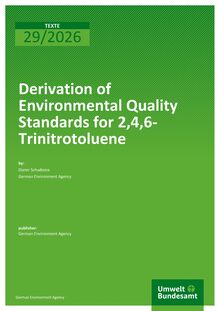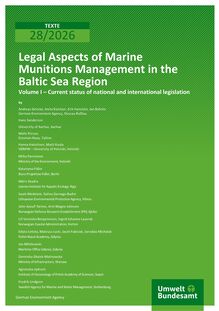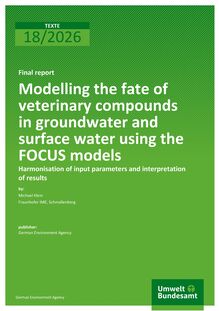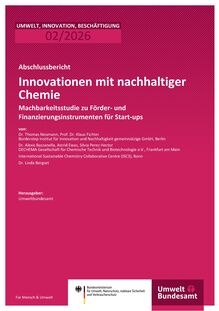

Chemicals
Chemicals are among the most heavily regulated areas in environmental protection. There is nevertheless a continuing need for action: chronic harm to health caused by chemicals in indoor air, consumer goods or foodstuffs remain problematic issues. Plant protection products affect not only "harmful" organisms but also many beneficial ones as well. Biocides are detrimental to water bodies. Pharmaceutical residues in soils and water pose a risk to the organisms living there. The reproductive capacity of plants and animals is impacted by the hormonal effects of chemicals. Finally, individual chemicals do not affect the environment but rather as compounds, often with a cumulative effect. Although some progress has been made, there is still a long way to go on the road to sustainable chemistry.



